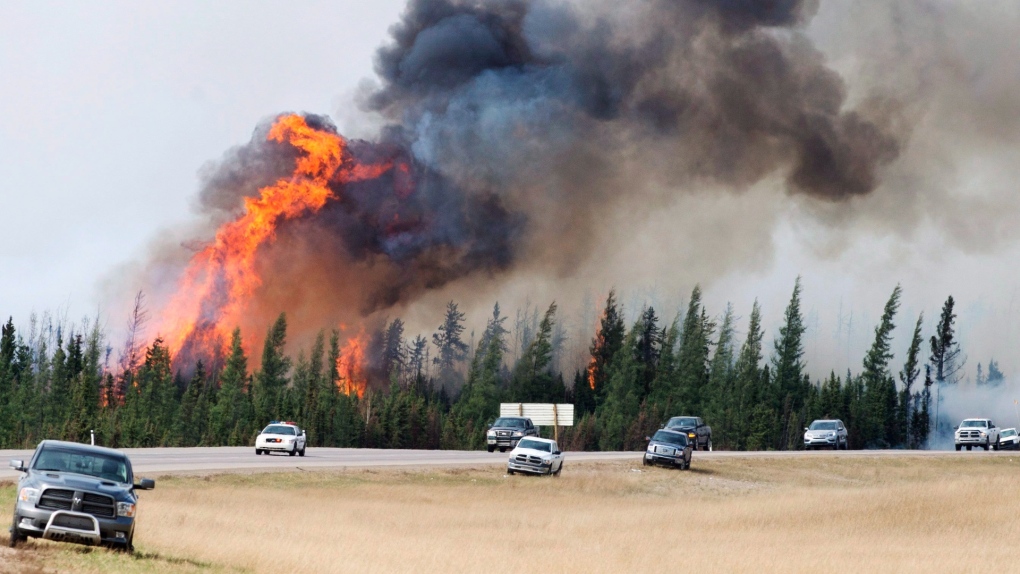Alberta's Air Quality: The State of the Science
After a smoky summer in 2021, we wanted to gather a state of the science. While some solid resources exist online, speaking to the experts adds an extra touch.
- Part 1 - Breathe easy: How an air quality forecast comes together
- Part 2 - Alberta's Air Quality: The Human Impact
We conducted a series of interviews, led by some of the foremost Canadian scientists keeping an eye on smoke, its physics, and the effects it has on people:
- Jack Chen - Modeling Scientist, Environment and Climate Change Canada
- Paul McCarthy - Senior Research Scientist, Environment and Climate Change Canada
- Chris Rodell - PhD student in Atmospheric Sciences at the University of British Columbia, Operator, BlueSky Canada forecast products
- Sarah Anderson - Scientific Director of Environmental Health Services, BC Centre for Disease Control
- Celine Audette - Policy Lead for the Air Quality Health Index, Meteorological Service of Canada
While wildfire events like Fort McMurray are much less common, wildfire smoke has been and will remain a prevalent feature in our future forecasts. So, we delved deep to provide you with the information at our disposal.
 RCMP escort evacuees from Fort McMurray, Alberta past wildfires that are still burning out of control Saturday, May 7, 2016.(THE CANADIAN PRESS/Ryan Remiorz)
RCMP escort evacuees from Fort McMurray, Alberta past wildfires that are still burning out of control Saturday, May 7, 2016.(THE CANADIAN PRESS/Ryan Remiorz)
The first part in our article series covers the sheer depth of complications and how scientists work to calculate it, the resources required, and the margin of error that still exists.
The second discusses the human impact. Why are smoke particles particularly harmful to humans? How do we stay safe? And why, when smoke is bad, do we only remain under advisories?
Happy reading.
CTVNews.ca Top Stories

Thousands of structures destroyed in L.A. County's most destructive fire
A series of wildfires tore through densely populated parts of the Los Angeles, Calif. area. Five people have been reported dead. U.S. Gov. Gavin Newsom said thousands of resources have been deployed to contain the fires.
Is the Hollywood sign on fire?
As fires scorch Los Angeles, fake images and videos of a burning Hollywood sign have circulated on social media.
U.S. Supreme Court rejects Trump's bid to delay sentencing in his New York hush money case
A sharply divided U.S. Supreme Court on Thursday rejected president-elect Donald Trump's final bid to put his New York hush-money case on hold, clearing the way for him to be sentenced for felony crimes days before he returns to the presidency.
Ex-Trump adviser says Canada in 'difficult position' amid tariff threat, Trudeau resignation
In the face of a potential tariff war, U.S. president-elect Donald Trump's former national security adviser John Bolton says 'Canada is in a difficult position' in part due to Prime Minister Justin Trudeau's resignation and a looming general election.
PM Trudeau says he thinks Trump is using talk of Canada becoming 51st state to distract from tariff impact
Prime Minister Justin Trudeau says he thinks U.S. president-elect Donald Trump is drumming up drama on Canadian statehood to detract from tariff talks.
Canadian travellers now require an ETA to enter U.K. Here's what to know
Starting Jan. 8, Canadians visiting the U.K. for short trips will need to secure an Electronic Travel Authorization (ETA) before boarding their flight, according to regulations set out by the U.K. government.
'True when I said it, true today': former Canadian PM Harper pushes back against Trump on social media
Former prime minister Stephen Harper doesn’t find U.S. president-elect Donald Trump’s jibes about Canada becoming the 51st U.S. state very amusing.
Poilievre says the next Canadian election will be about the carbon price
Pierre Poilievre returned to Ottawa on Thursday after the holidays with a familiar demand for Justin Trudeau: call a carbon-tax election.
More than 150 students sick at University of Guelph, says public health
More than 150 cases of gastroenteritis have been reported at the University of Guelph.

































